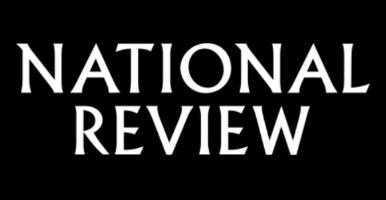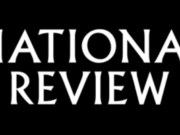Of all the attacks on Supreme Court nominee Brett Kavanaugh, perhaps the silliest is that he would open the door to foreign money in U.S. elections. How silly? The basis for this claim is an opinion that Judge Kavanaugh wrote upholding a law that prohibits non-resident aliens from making political contributions or expenditures.
Back in 2010, two Canadians residing in the U.S. on temporary visas wanted to contribute to U.S. political candidates — one to Democrats, the other to Republicans. However, federal law says that only U.S. citizens and lawful permanent residents — that is, “green card” holders — can do that.
Plaintiffs Benjamin Bluman and Asenath Steiman argued that the Supreme Court’s decision in Citizens United v. Federal Election Commission undermined the constitutionality of that law. In Citizens United the Supreme Court ruled that Congress could not prohibit corporations from spending money to support candidates for office simply because they were corporations. One week later, President Barack Obama lectured the Supreme Court in his State of the Union address, claiming that the decision in Citizens United would “open the floodgates for special interests, including foreign corporations, to spend without limit in our elections.”
“Not true,” mouthed Justice Sam Alito, seated in the audience during Obama’s comments. But Bluman and Steiman took up the president’s off-the-cuff legal opinion and sued. The case — Bluman v. Federal Election Commission — was heard by a three-judge court, with Brett Kavanaugh writing the opinion.
If Judge Kavanaugh thought that the Constitution protected the right of non-resident aliens to make political expenditures in U.S. elections, Bluman was a perfect case to strike down that law. The plaintiffs supported mainstream Republican and Democratic candidates. They were from a nation long allied with the U.S., not from geopolitical rivals such as China or Russia. No less an authority than the president had proclaimed that the ban on foreign spending was now open to question. They sought to make small contributions and expenditures — no more than $100 each in three or four different races. There was no chance that these small contributions would “corrupt” the legislature, the traditional justification for limits on campaign contributions and spending.
Yet, in a thorough, scholarly opinion for a unanimous panel, Judge Kavanaugh upheld the statute banning foreign contributions. Kavanaugh noted that the Supreme Court has upheld laws barring non-citizens from voting, participating on juries, or working as public-school teachers and police officers. Aliens have many constitutional rights, he concluded, but “the right to govern is reserved to citizens.”
At the Supreme Court, Judge Kavanaugh’s decision was summarily affirmed without dissent. And that, as they say, was that.
Until now. Desperate times call for desperate arguments, and Senate minority leader Chuck Schumer and other Kavanaugh detractors now claim that upholding the ban on foreign spending in elections is actually evidence of Kavanaugh’s intent to subvert the ban. Follow?
In his opinion, Judge Kavanaugh noted that the law banning foreign spending covers only what is known as “express advocacy” — communications specifically advocating the election or defeat of a candidate, such as “vote for Senator Jones.” It doesn’t cover ads saying, for example, “No one wins a trade war; urge your Senator to oppose Trump’s tariffs;” or “Stand with NATO.” But as the plaintiffs intended to finance only “express advocacy,” there was no need to consider broader statements. The statute covered their activities, and was found to be constitutional.
Kavanaugh critics claim, however, that Kavanaugh should have taken it upon himself to go further. He should have interpreted the law as covering a much broader range of communications than the express advocacy actually at issue. His failure to address an issue not before him, they allege, is somehow evidence that, once seated on the Supreme Court, he would strike the existing ban on foreign spending in U.S. elections, or at least oppose congressional efforts to expand it to cover generic ads about candidates and issues.
Not only is this insane legal reasoning, but it is Kavanaugh’s critics who are adopting the extreme view. After all, while we don’t want foreign nationals interfering in our elections, Americans can benefit from hearing the opinions of foreigners on the effects our political decisions might have. In cooler times, Kavanaugh would be praised for his restraint in not reaching out to decide matters not before the court.
If these are the best attacks against Kavanaugh, a judge with an enormous paper trail, it’s a sign that the argument against confirmation is very weak.
This post originally ran in National Review on August 1st 2018.














